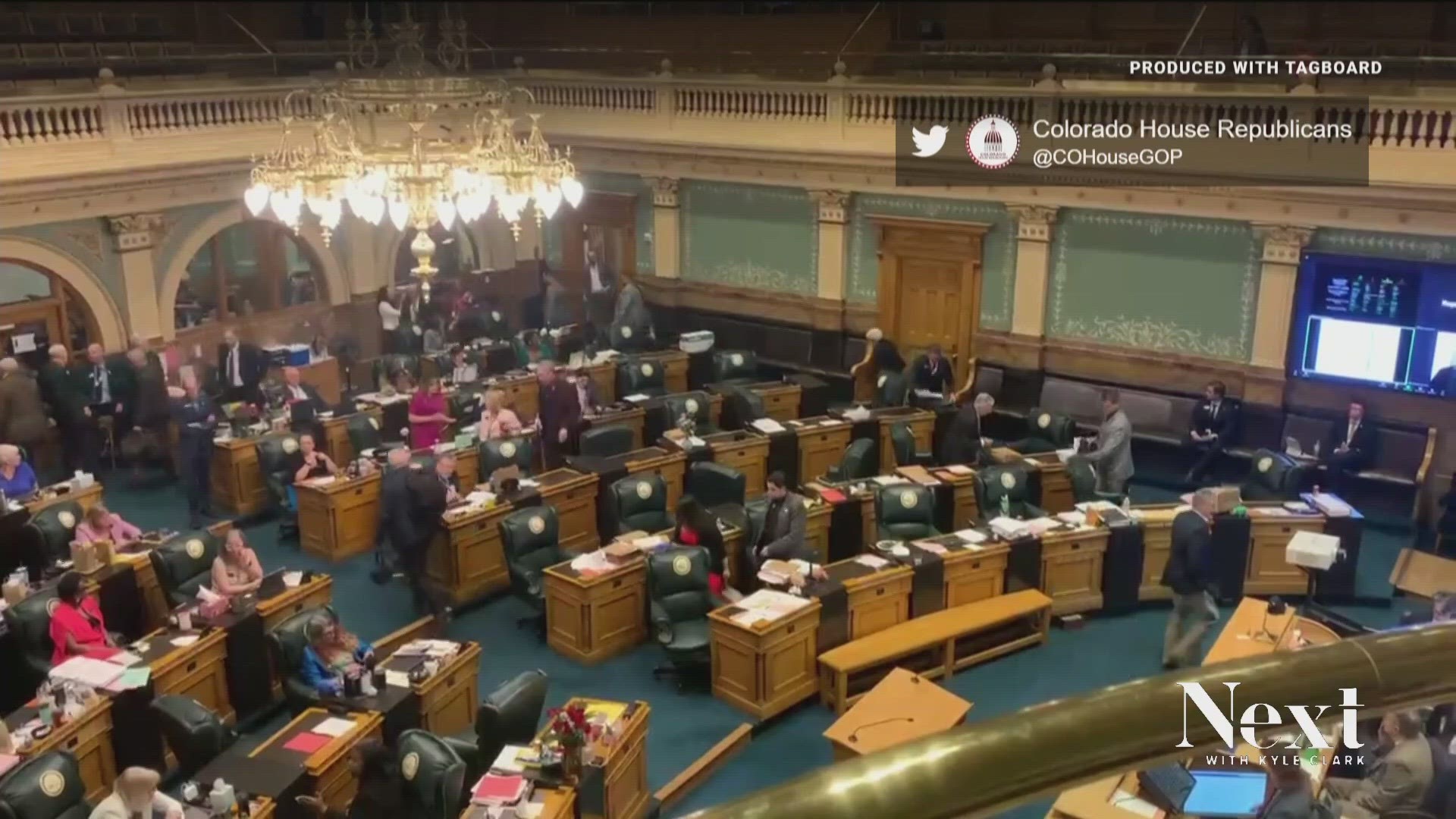DENVER — Equal and equitable Taxpayer Bill of Rights (TABOR) refunds for renters were always part of the plan for property tax relief for property owners, according to Democratic leadership at the Capitol and Gov. Jared Polis (D).
In the final week of the legislative session, Democratic lawmakers introduced a bill that would put an issue on the ballot to deal with property tax bill increases.
Property owners will still pay more in property taxes, but a "yes" vote on the ballot issue – known as Proposition HH -- would minimize the increase. Since local governments -- which include cities, counties, school districts, fire districts, water districts and library districts -- would receive fewer property tax dollars, the state would use TABOR refund money to make sure they get some of that funding back. Over time that would reduce the amount of TABOR money to be refunded to taxpayers.
A second bill, introduced on Saturday at the legislature and passed on Monday, would provide equal TABOR refunds for all taxpayers, regardless of income level, only if Proposition HH passes.
That means a person who earns less than $50,000 would get about $192 more in their TABOR refund, while a person who earns more than $279,001 would get $842 fewer dollars.
On Tuesday, at a news conference with Democratic leadership, we asked the governor why equal and equitable TABOR refunds has to be traded in exchange for a "yes" vote on Proposition HH.
“I, personally, believe the pathway to a more progressive TABOR refund mechanism is through an income tax cut,” Polis said.
A lower state income tax would result in fewer dollars coming in and fewer dollars needing to be refunded because of TABOR. But that was not the question.
When asked a second time by CBS4 reporter Shaun Boyd, House Speaker Julie McCluskie (D-Dillon) and Senate President Steve Fenberg (D-Boulder) answered instead.
“It may appear that they are politically connected, but they are policy connected,” Fenberg said. “We wanted to make it clear that if we are going to be talking about property taxes, that we provide obviously, meaningful, real relief to property owners, but also those who rent those properties.”
Without the equal TABOR refunds for all, property owners and not renters, are the true beneficiary of the proposal to minimize the increase of property tax bills, particularly because everyone’s TABOR refund money – renters included -- would be used to backfill local governments.
By trying to make TABOR refunds equal for all, low-income earners, which likely includes more renters than property owners, would get extra money, but in exchange for a "yes" vote on Proposition HH.
“We want to make sure that money that is used from that pot of money, the [TABOR] surplus, it doesn’t negatively impact people who are renters,” Fenberg said.
Fenberg said the property tax ballot issue and equal TABOR refunds for all are connected, but could not be included in the same bill because of rules limiting legislation to a single topic.
“To be honest, we couldn’t fit the TABOR refund aspect in the title of the original bill, and so that’s why it’s a separate bill that’s connected to it,” Fenberg said.
However, the property tax ballot issue legislation was introduced on May 1.
The equal TABOR refunds for all was not introduced until May 6.
Colorado Sun reporter Jesse Paul asked Polis why, if he feels the six-tier income-based TABOR refund system is inequitable, are the equal TABOR refunds tied to a yes vote on Proposition HH.
“As Sen. Fenberg said, I think that the TABOR refund mechanism was part of the discussion around property tax relief. So when you just provide property tax relief, it helps people that are homeowners, and then you say what do you do about people who are not homeowners, you might have an accompanying change to the TABOR mechanism,” Polis said. “I’m always open to discussions of changing the TABOR refund mechanism, but for me, those discussions begin with income tax cuts, and then they go on to include earned income tax credit, flat refunds, child tax credits.”
The bill to put Proposition HH on the ballot was the last piece of legislation voted on in the House on Monday night. As the vote was to take place, all 19 House Republicans walked out. Their "no" votes would not have mattered. The bill passed, with all Republicans recorded as “excused.”
“I don’t think walking out on a body is polite. There were times when I served in the legislative body in Congress that I wasn’t happy with what the majority party was doing, but I never walked out,” Polis said.
“What we accomplished is we made a statement,” said House Minority Leader Mike Lynch (R-Wellington). “That we’re not going to participate in what we believe is really bad legislation that did not have any proper stake holding to it.”
Lynch said he heard there were 200 meetings regarding the property tax proposal, but no one in the Republican caucus knew of any of the meetings.
We asked how walking out was any different than voting ‘no.’”
“Ah, we’re talking about it right now,” Lynch said.
SUGGESTED VIDEOS: Full Episodes of Next with Kyle Clark

